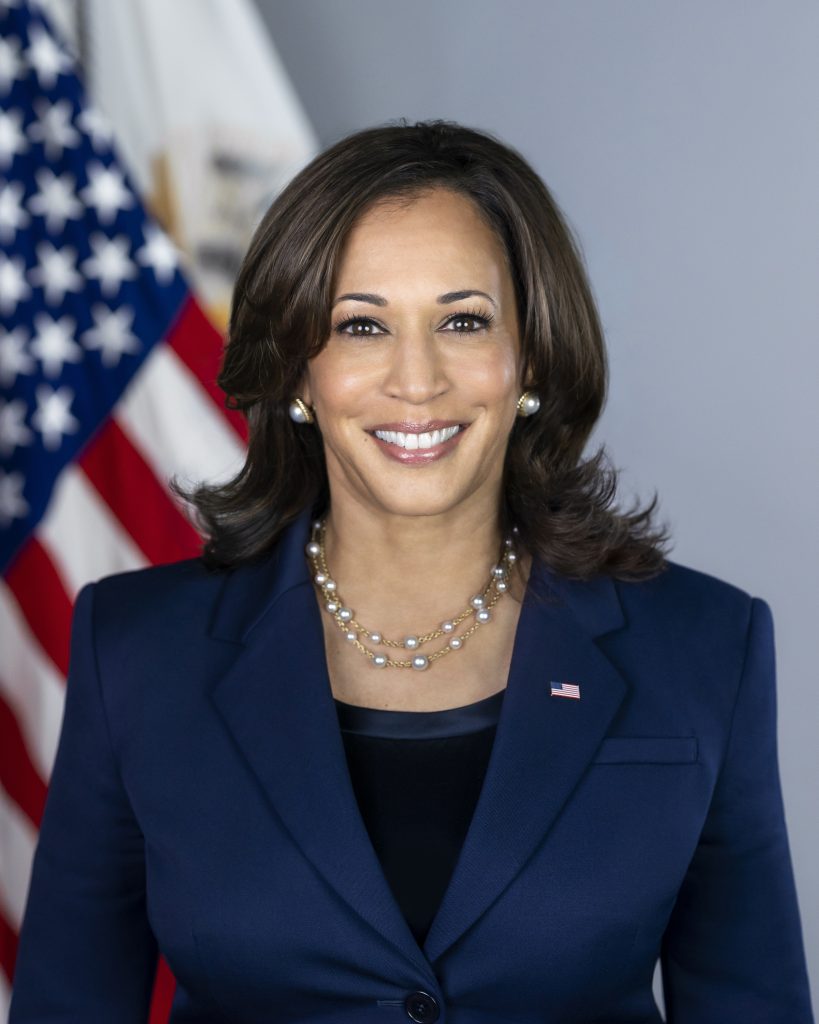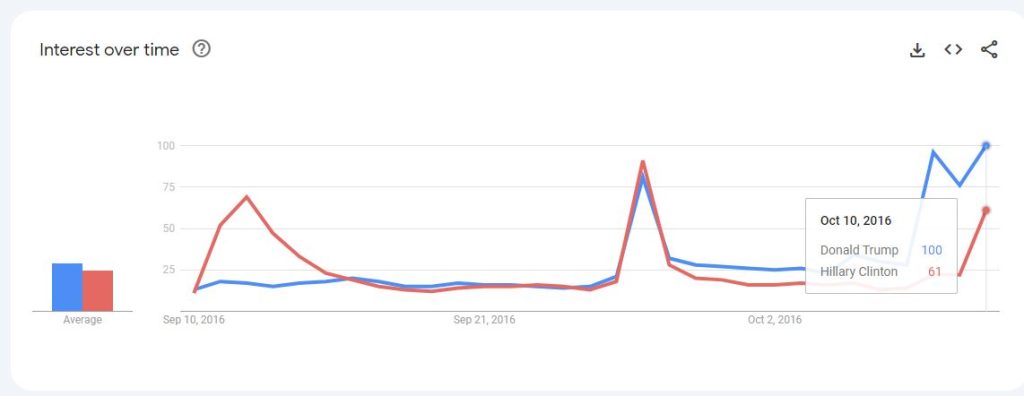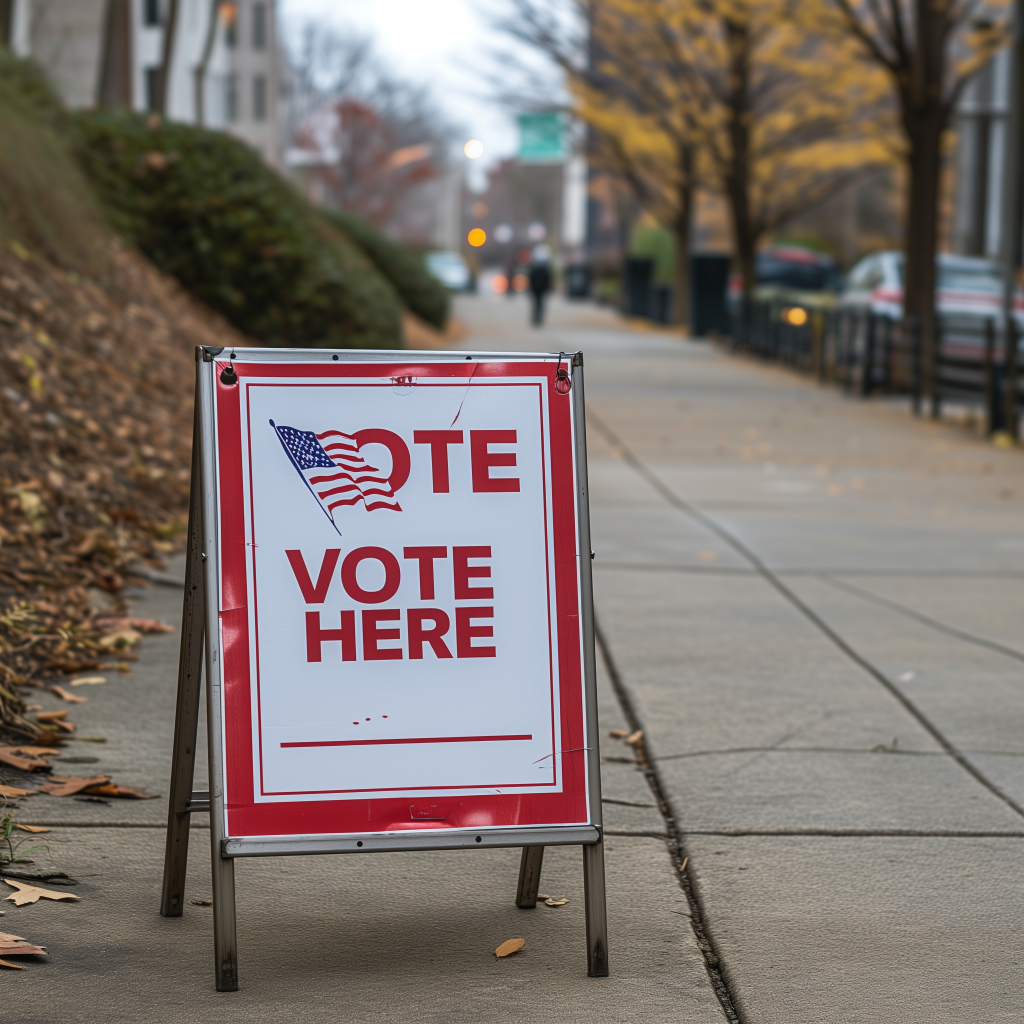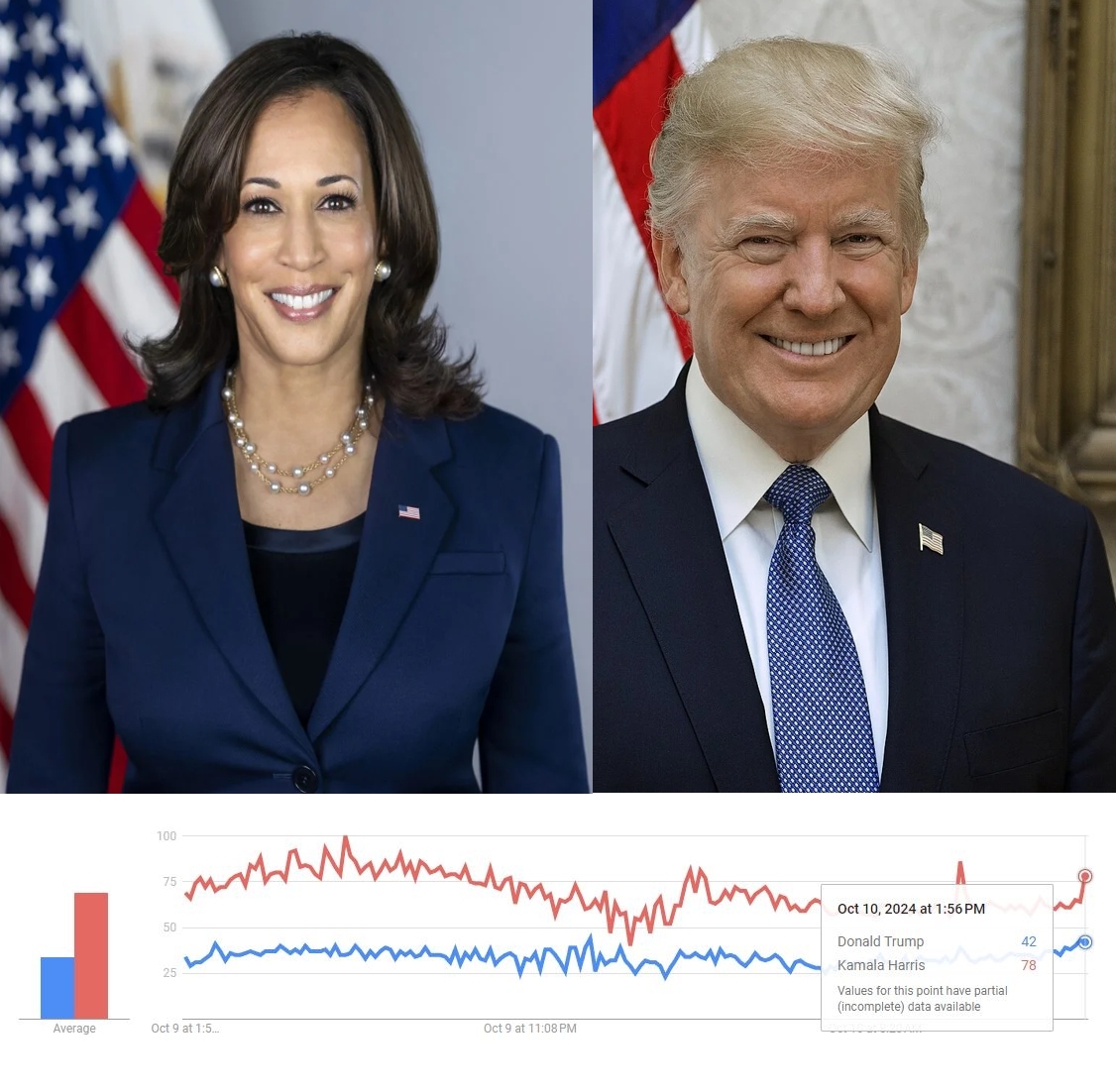As the 2024 U.S. presidential election approaches, an unexpected tool is providing key insight into the race between Vice President Kamala Harris and former President Donald Trump: Google Trends. This tool, which tracks how often people search for specific terms online, could be a crucial indicator of the election’s outcome. Currently, Google Trends data suggests Harris might have an edge over Trump. A study found that in every U.S. election since 2004 and in five Canadian elections, the candidate with the most Google searches went on to win.

Google Trends measures search activity, showing how popular specific terms are compared to others over a given time. For example, if more people are searching for “Kamala Harris” than “Donald Trump,” it could signal growing interest in Harris, possibly reflecting voter support. This surge in searches might reveal public curiosity about Harris’s policies, character, or leadership style.

In past elections, search activity has been used to accurately predict the winner. Media outlets and campaign managers typically rely on pre-election polls, but these polls often have varying degrees of accuracy. In contrast, Google Trends data provides a different, and sometimes more accurate, perspective. A previous study conducted on U.S. and Canadian elections analyzed Google search data in the months leading up to polling day. This Big Data approach has shown remarkable predictive power, outperforming many traditional polling methods .

Looking at the 2024 election, Harris is leading Trump in search interest, especially around key issues like healthcare and climate change. Her rise in search popularity could reflect increasing support from voters interested in her platform. Meanwhile, Trump’s search trends have remained stable, but much of the activity focuses on his legal challenges and controversies rather than his campaign policies. This shift in attention could be a disadvantage for Trump, as voters may be more focused on Harris’s vision for the future.

While Google Trends is not a perfect predictor—search interest doesn’t always directly translate into votes—it has proven to be an extremely accurate tool in past elections. The surge in interest surrounding Harris could indicate a shift in voter sentiment, similar to how Donald Trump’s search activity spiked before his victory in 2016 over Hillary Clinton.

As we get closer to election day, this trend may continue, suggesting Harris could be on track for a win. For those monitoring the race, Google search data offers a unique perspective on voter interest. Combining this real-time data with traditional polls might provide a clearer picture of what to expect on election night.

For more details on how Google Trends can be used to predict election outcomes, you can read the full study here and the additional research on U.S. and Canadian elections here.





